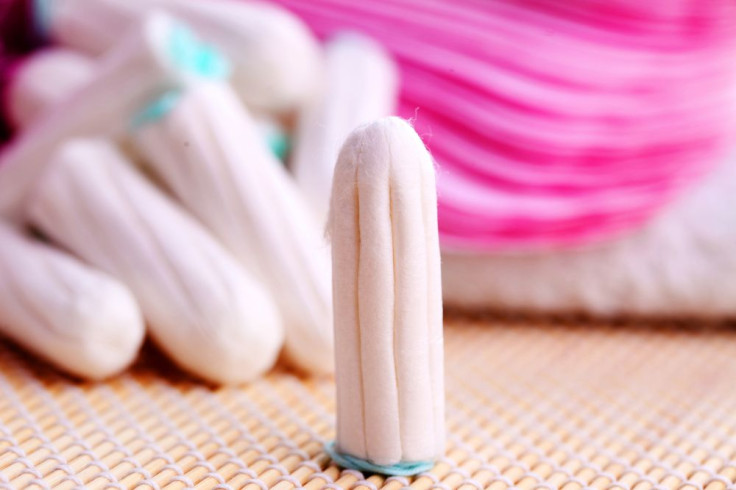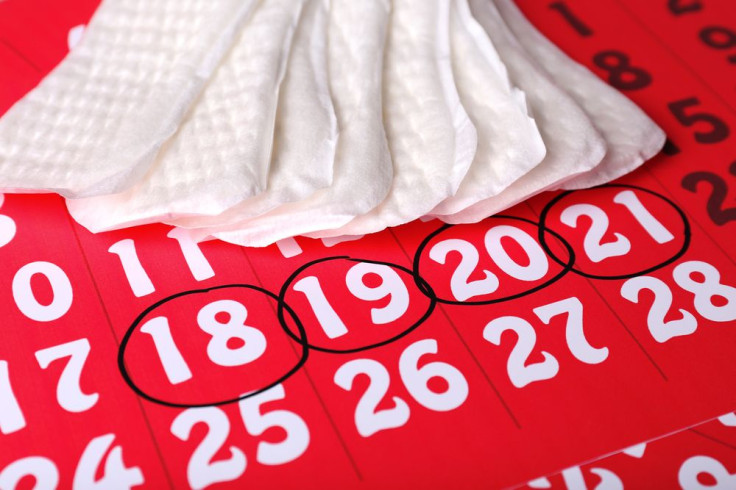The Menstrual Cycle: 7 Little-Known Things About Periods And The Female Body

Every month women prepare for the often dreaded and unwelcome visit from Aunt Flo. This menstrual blood that flows from the uterus through the cervix and vagina is a clear sign that the body is working normally, providing hormones to keep women healthy. As the body adapts to the menstrual period — two to seven days — what are external and physical changes it undergoes?
A woman’s menstrual period prepares her body for pregnancy each month, says the Office of Women’s Health, with the average cycle lasting 28 days. With estrogen levels on the rise, making the lining of the uterus grow and thicken, the body undergoes unique changes that go beyond cramps, pimples, and PMS. In no particular order, here are seven little-known facts about the mystery behind Mother Nature’s monthly gift.
1. Periods decrease cognitive ability.
The abdominal pain, backaches, and nausea during a woman’s period can actually affect how she thinks and feels, reducing her cognitive ability. Menstrual cramps can interfere with selective attention, attention span, and dividing and switching attention between two tasks, according to a 2014 study published in the journal Pain. So, women’s period pain goes beyond the sensory experience.
2. Periods can change the sound of voice.
The hormonal changes related to a woman’s menstrual cycle also alter the sound of her voice. The cells from the larynx and vagina are believed to be similar and show similar hormone receptors. A 2011 study published in the journal Ethology found men can detect from a woman’s voice whether she is menstruating. Three groups of men were asked to listen to voice recordings of women who counted from one to five during four different points of their menstrual cycle. They identified the menstrual voice 35 percent of the time.
3. Men are less attracted to women on their period.
Men are not only good listeners when it comes to distinguishing the "period voice," but they also have a keen sense of smell — at least when it comes to a woman’s menstrual cycle. Animal studies have shown a man’s testosterone levels are influenced by a woman’s scent, especially when she’s ovulating. A 2010 study published in the journal Psychological Science found men’s testosterone levels increased significantly when they smelled T-shirts worn by ovulating women compared to T-shirts worn by those not ovulating.

4. Periods can make women feel frisky.
A woman’s menstrual cycle is highly connected to her sex drive. During menstruation, a woman’s level of progesterone is lowest during this time, says Healthline, which may make women feel frisky. Another theory is pelvic congestion during the time of the month. This can help trigger or translate to arousal. Moreover, it’s believed because of the additional lubrication from menstruation, this makes penetration more comfortable.
5. Women can get pregnant on their period.
Women who feel frisky and have sex on their period should keep in mind they can still get pregnant. Women who have typical 28- to 30-day or longer cycles are less likely to get pregnant, since ovulation is several days away, decreasing chances of conceiving during this time. However, women who have a shorter cycle (21 to 24 days) have a higher likelihood of getting pregnant while having sex on their period, according to the American Pregnancy Association.
6. The average period releases less than a cup of blood.
Women may experience a heavy flow and find themselves going through boxes of pads and tampons, but the blood loss isn’t so severe. Typically, the first two days of the period are the heaviest, in terms of blood discharge. The average amount of blood lost each month ranges from a few tablespoons to a cup, according to NYU School of Medicine. Bleeding that leads to changing a soaked pad or tampon more than every two hours is considered outside the normal range and calls for medical attention.
7. Women can experience vicarious menstruation.
Normally, women bleed from their uterus during their periods, but those with vicarious menstruation can bleed from their eyes, ears, and mouth. A case report published in The Journal of the American Medical Association found a young woman who was suffering from an ulcer on each leg experienced excessive pain and bled profusely. The edges were irregular and not inflamed nor raised. Despite various forms of treatment, the ulcers remained large during five or six days of menstruation, and then closed three days later with a smooth, apparently thin skin.



























